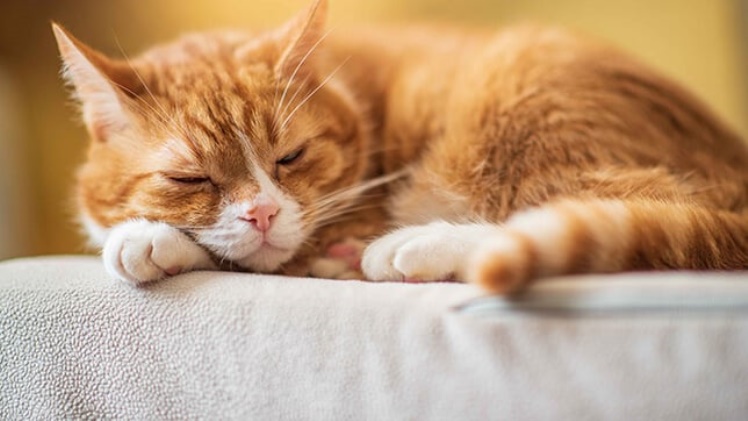Does your feline snore louder than you thought it could? Usually, dog snoring is more common than cat snoring. But there is nothing to worry about. Let’s discuss why cats snore, when it’s normal, and when it may turn worrisome, and you might have to visit the vet.
What Is Snoring?
When your cat is asleep, tissues at the back of the throat may vibrate and relax. The shaking of the tissue makes the snoring loud. Any pet with a tissue structure in the throat can snore. It’s more common in dogs than cats.
When cats fall into a deep sleep, they may start snoring. It is improbable that your cat snores every time it falls asleep. Snoring is normal unless your kitty is permanently snoring and is showing various other symptoms associated with potential health conditions. In times like this, you must consult your vet for medical assistance. Knowing the root cause of excessive snoring helps with treating the issue effectively. Cat insurance helps support your furball with top-notch medical care with little economic hassle. So it is wise to invest in pet insurance early on. Consider buying cheap cat insurance the least, so you are well-equipped to tackle accidents, injuries, and health emergencies.
Read this article to learn four common reasons cats snore.
1. Some cats are highly prone to snoring
Some feline fur babies are highly prone to snoring. For instance, if your cat has put on too many kgs, it is more likely to snore. Overweight and obese cats show snoring tendencies more often than their slimmer counterparts. These conditions raise health risks, so you should consider helping your munchkin lose weight if it has crossed the ideal weight for its age, size, and breed.
2. Some sleeping positions trigger snoring
Some cats snore simply because some of their sleeping positions induce noisy breathing. If your cat naps in weird places regularly, expect to hear its snores.
3. Overweight
Cats between the age of 5 to 11 usually weigh more than they should. Similarly, as in humans, extra fat can be accumulated around your kitty’s neck, which might get difficult for your cat to breathe and may result in snoring. Obesity is, anyway, a more severe issue in cats than snoring. If your feline is obese, consult a vet for tips to help them reduce weight.
4. Some cat breeds snore often
Flat-face feline breeds or brachycephalic breeds snore more compared to other cat breeds. For instance, Persian and Himalayan cats are cat breeds that can develop airway syndrome and make more noise while sleeping because of their soft elongated palates and short nasal passages.
5. Foreign Object
If you have discovered that your cat has started to snore suddenly, then it’s most likely that the feline has inhaled a foreign object, like a strand of grass or a sharp object. If they have something in their nose, they will keep coughing or get angry. If you feel something in the cat’s nose, take the kitty to the vet rather than treat it on your own.
6. Respiratory Illnesses
When you have caught a cold, you are most likely to snore. Similarly, it is with your cat. Bacterial infections, asthma and fungal infections are a few reasons that cause snoring. Visit a vet if your cat sneezes often and shows any infections.
7. Some cats snore due to health issues
Apart from snoring, if you notice the below signs and more, consult your vet immediately, as your cat might be silently dealing with deeper health issues.
- Nasal discharge
- Eye discharge
- Coughing
- Sneezing
- Sores on the nose
- Snoring when awake
- Face swelling
- Changes in vocalizations
- Appetite changes
Watch for changes in your feline’s body language, like extending the head or neck straight to properly inhale air or continuously trying to breathe through the mouth. These actions point to potential respiratory issues, and your furball might have breathing distress and require medical help immediately.
Snoring is a symptom of severe health conditions like trauma, asthma, bacterial/viral/fungal infections, inflammation, polyps, cancer, laryngeal paralysis, and foreign objects stuck in the back of the mouth or nose. This is precisely why timely medical intervention is necessary.
Pet insurance helps manage unexpected vet bills with fewer financial troubles. Contemplate purchasing cat insurance so your furball gets the medical care it deserves during non-routine vet visits without taking a toll on your savings.

